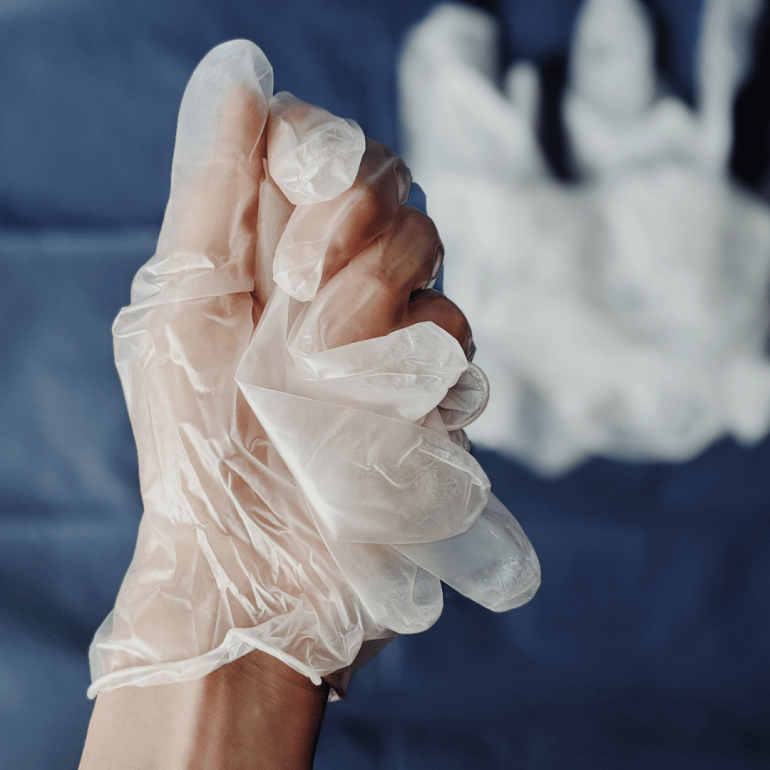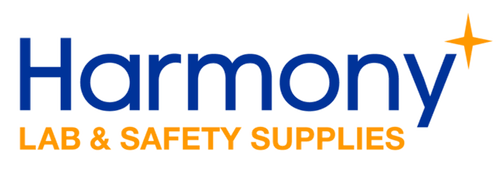Understanding Vinyl Gloves

What are Vinyl Gloves?
Vinyl gloves are a type of disposable glove widely used in the food industry. Designed to provide a protective barrier between workers’ hands and potential contaminants, vinyl gloves are essential to ensure food safety and hygiene. They are made from a synthetic polymer known as polyvinyl chloride (PVC) and offer several advantages over other types of gloves.
Vinyl Gloves for Food Handling
Food industry workers use vinyl gloves for food handling. These gloves serve as a safeguard against cross-contamination and protect both workers and consumers. Here are some key reasons why vinyl gloves are preferred in the food industry:
- Cost-effectiveness: Vinyl gloves are more affordable than alternatives such as nitrile or latex gloves, making them a cost-effective choice for the food industry.
- Comfort: Vinyl gloves offer excellent dexterity and a comfortable fit, allowing workers to perform their tasks efficiently and with ease.
- Hypoallergenic: Vinyl gloves are suitable for individuals with latex allergies, as they do not contain any natural rubber latex proteins.
- Better visibility: Vinyl gloves are often translucent, providing better visibility of any potential contamination or foreign objects that may come into contact with the gloves.
Uses of Vinyl Gloves
Vinyl gloves find application in various food handling areas within the food industry. These gloves are crucial for maintaining proper hygiene and ensuring the safety of food products. Here are some common uses of vinyl gloves:
1. Food preparation: Whether cutting, slicing, or chopping ingredients, vinyl gloves provide protection against pathogens and minimize the risk of contamination during food preparation.
2. Handling ready-to-eat food: When it comes to handling ready-to-eat food items such as salads, sandwiches, or bread, vinyl gloves are essential to prevent any potential contamination from workers’ hands.
3. Cleaning and sanitation: Proper cleaning and sanitation are crucial in the food industry. Vinyl gloves are a barrier against harmful cleaning chemicals and protect workers’ hands while maintaining cleanliness standards.
4. Food packaging: Vinyl gloves are used by workers involved in food packaging to maintain the integrity and hygiene of the final product.
Vinyl Glove Manufacturing Process
Understanding how vinyl gloves are manufactured provides valuable insight into their quality and effectiveness. The manufacturing process involves the following steps:
- Vinyl compound preparation: The raw materials required to produce vinyl gloves, such as PVC resin and plasticizers, are mixed to create a vinyl compound.
- Glove formation: The vinyl compound is heated and formed into the shape of gloves using a mold. This process may involve dipping a former in the compound or using automated machinery.
- Leaching and cleaning: The gloves are leached in hot water to remove residual chemicals or impurities. They are then thoroughly cleaned to comply with hygiene standards.
- Powdering (optional): Some vinyl gloves are powdered to enhance donning and doffing and improve comfort during extended wear.
- Packaging: After rigorous quality checks, the gloves are packaged, ensuring they remain clean until they are opened for use.
In conclusion, vinyl gloves are indispensable for food industry workers. They play a vital role in maintaining food safety standards, preventing contamination, and protecting workers and consumers.
With their cost-effectiveness, comfort, and hypoallergenic qualities, vinyl gloves are the preferred choice for various food-handling tasks.
Understanding the manufacturing process further reinforces the importance of using quality vinyl gloves in the food industry.
